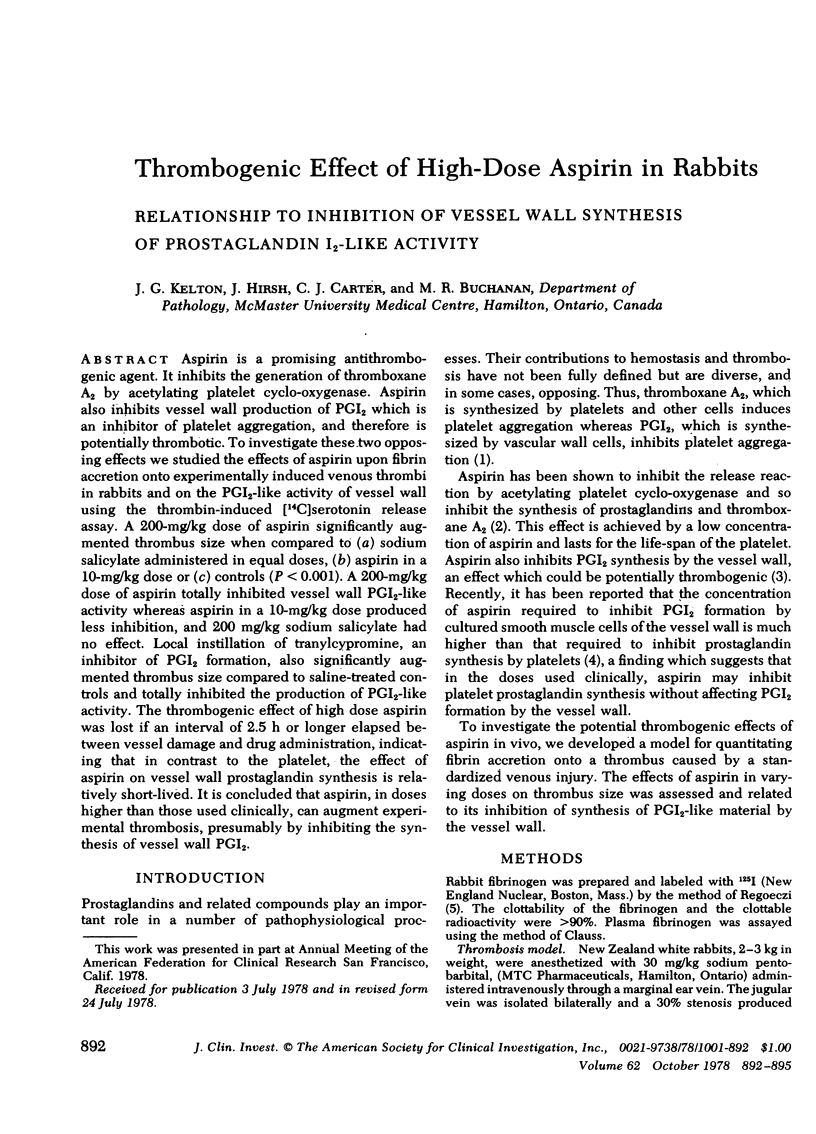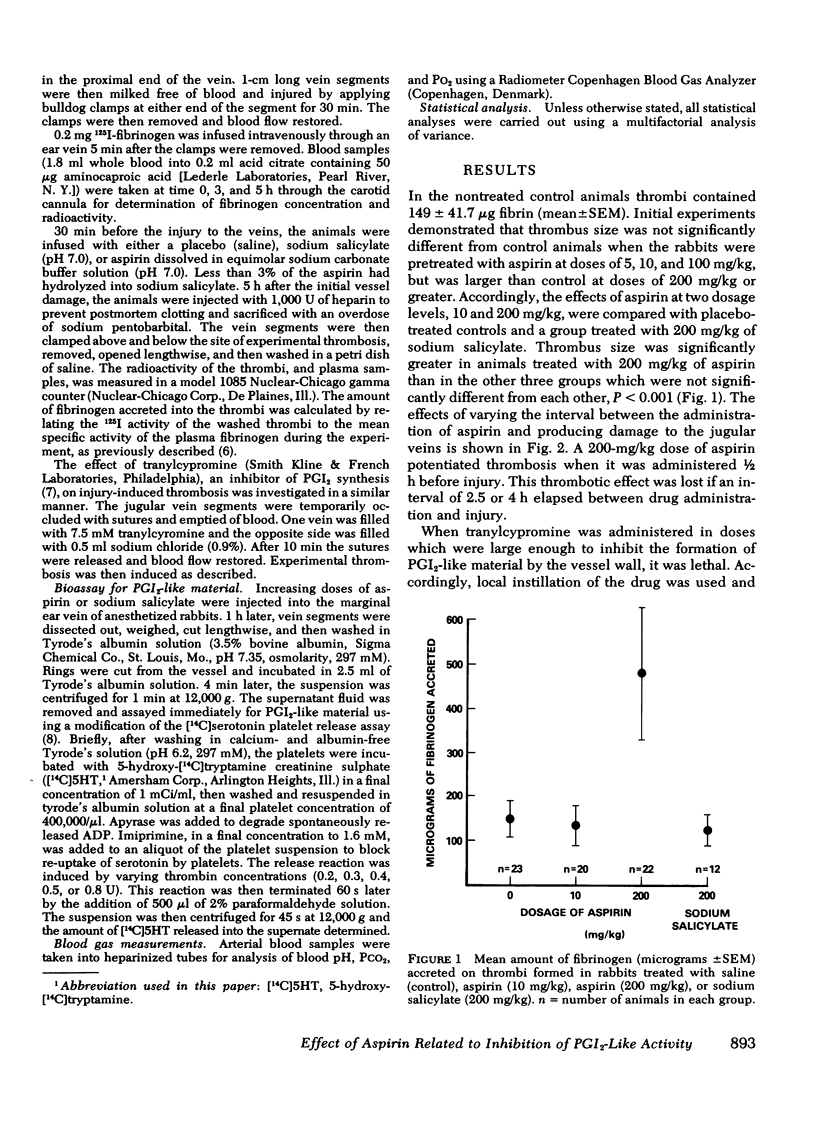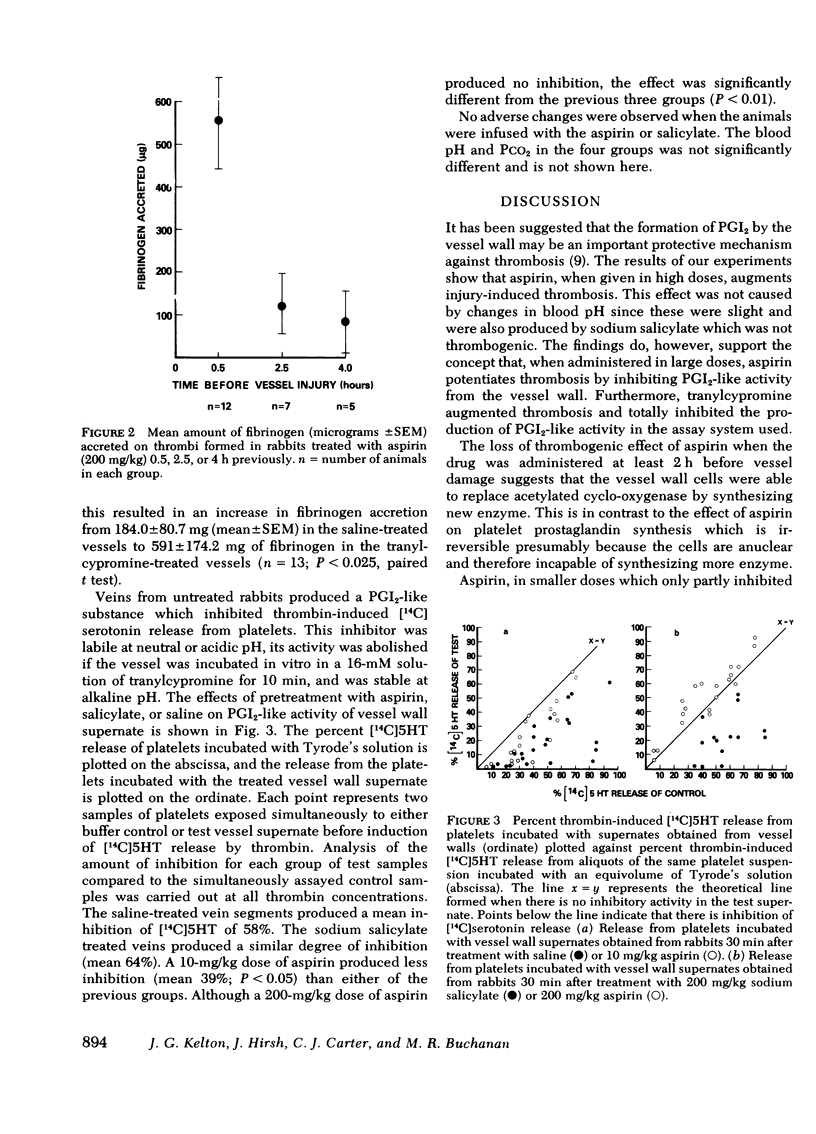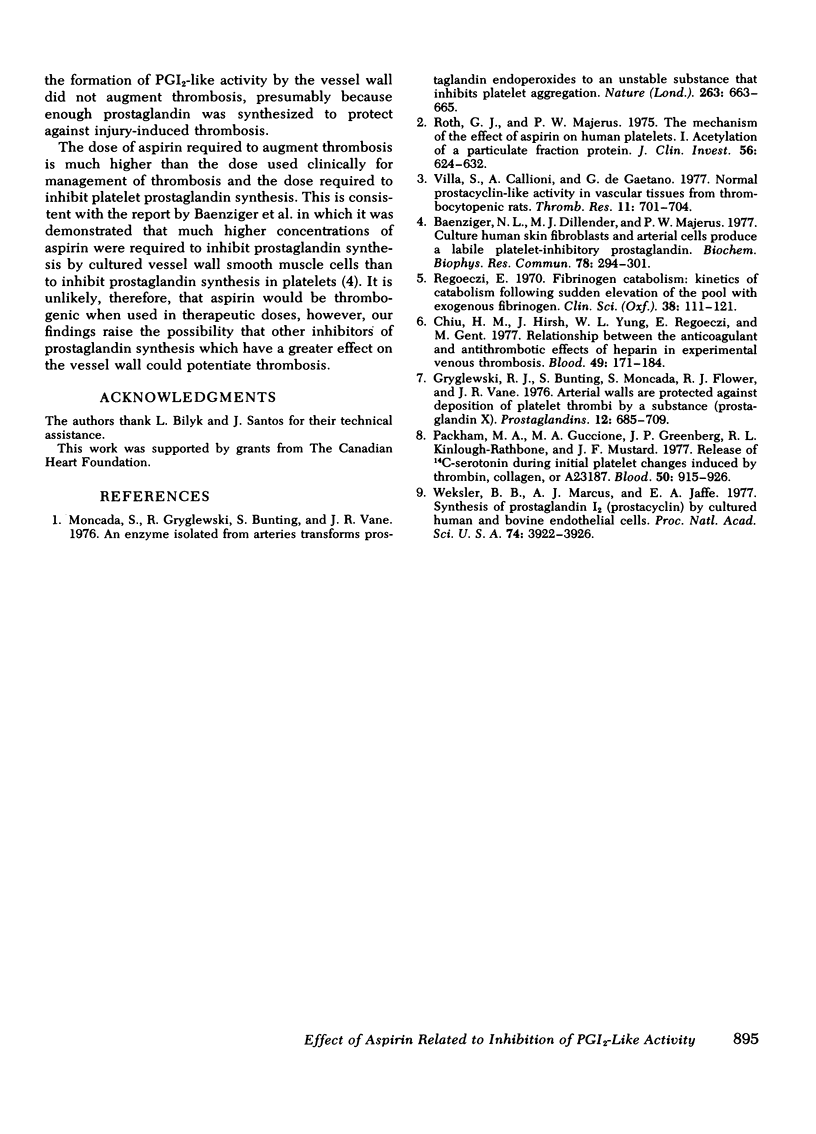Abstract
Aspirin is a promising antithrombogenic agent. It inhibits the generation of thromboxane A2 by acetylating platelet cyclo-oxygenase. Aspirin also inhibits vessel wall production of PGI2 which is an inhibitor of platelet aggregation, and therefore is potentially thrombotic. To investigate these two opposing effects we studied the effects of aspirin upon fibrin accretion onto experimentally induced venous thrombi in rabbits and on the PGI2-like activity of vessel wall using the thrombin-induced [14C]serotonin release assay. A 200-mg/kg dose of aspirin significantly augmented thrombus size when compared to (a) sodium salicylate administered in equal doses, (b) aspirin in a 10-mg/kg dose or (c) controls (P < 0.001). A 200-mg/kg dose of aspirin totally inhibited vessel wall PGI2-like activity whereas aspirin in a 10-mg/kg dose produced less inhibition, and 200 mg/kg sodium salicylate had no effect. Local instillation of tranylcypromine, an inhibitor of PGI2 formation, also significantly augmented thrombus size compared to saline-treated controls and totally inhibited the production of PGI2-like activity. The thrombogenic effect of high dose aspirin was lost if an interval of 2.5 h or longer elapsed between vessel damage and drug administration, indicating that in contrast to the platelet, the effect of aspirin on vessel wall prostaglandin synthesis is relatively short-lived. It is concluded that aspirin, in doses higher than those used clinically, can augment experimental thrombosis, presumably by inhibiting the synthesis of vessel wall PGI2.
Full text
PDF



Selected References
These references are in PubMed. This may not be the complete list of references from this article.
- Baenziger N. L., Dillender M. J., Majerus P. W. Cultured human skin fibroblasts and arterial cells produce a labile platelet-inhibitory prostaglandin. Biochem Biophys Res Commun. 1977 Sep 9;78(1):294–301. doi: 10.1016/0006-291x(77)91253-0. [DOI] [PubMed] [Google Scholar]
- Chiu H. M., Hirsh J., Yung W. L., Regoeczi E., Gent M. Relationship between the anticoagulant and antithrombotic effects of heparin in experimental venous thrombosis. Blood. 1977 Feb;49(2):171–184. [PubMed] [Google Scholar]
- Gryglewski R. J., Bunting S., Moncada S., Flower R. J., Vane J. R. Arterial walls are protected against deposition of platelet thrombi by a substance (prostaglandin X) which they make from prostaglandin endoperoxides. Prostaglandins. 1976 Nov;12(5):685–713. doi: 10.1016/0090-6980(76)90047-2. [DOI] [PubMed] [Google Scholar]
- Moncada S., Gryglewski R., Bunting S., Vane J. R. An enzyme isolated from arteries transforms prostaglandin endoperoxides to an unstable substance that inhibits platelet aggregation. Nature. 1976 Oct 21;263(5579):663–665. doi: 10.1038/263663a0. [DOI] [PubMed] [Google Scholar]
- Packham M. A., Guccione M. A., Greenberg J. P., Kinlough-Rathbone R. L., Mustard J. F. Release of 14C-serotonin during initial platelet changes induced by thrombin, collagen, or A23187. Blood. 1977 Nov;50(5):915–926. [PubMed] [Google Scholar]
- Regoeczi E. Fibrinogen catabolism: kinetics of catabolism following sudden elevation of the pool with exogenous fibrinogen. Clin Sci. 1970 Jan;38(1):111–121. doi: 10.1042/cs0380111. [DOI] [PubMed] [Google Scholar]
- Roth G. J., Majerus P. W. The mechanism of the effect of aspirin on human platelets. I. Acetylation of a particulate fraction protein. J Clin Invest. 1975 Sep;56(3):624–632. doi: 10.1172/JCI108132. [DOI] [PMC free article] [PubMed] [Google Scholar]
- Villa S., Callioni A., de Gaetano G. Normal prostacyclin-like activity in vascular tissues from thrombocytopenic rats. Thromb Res. 1977 Dec;11(6):701–704. doi: 10.1016/0049-3848(77)90098-6. [DOI] [PubMed] [Google Scholar]
- Weksler B. B., Marcus A. J., Jaffe E. A. Synthesis of prostaglandin I2 (prostacyclin) by cultured human and bovine endothelial cells. Proc Natl Acad Sci U S A. 1977 Sep;74(9):3922–3926. doi: 10.1073/pnas.74.9.3922. [DOI] [PMC free article] [PubMed] [Google Scholar]



